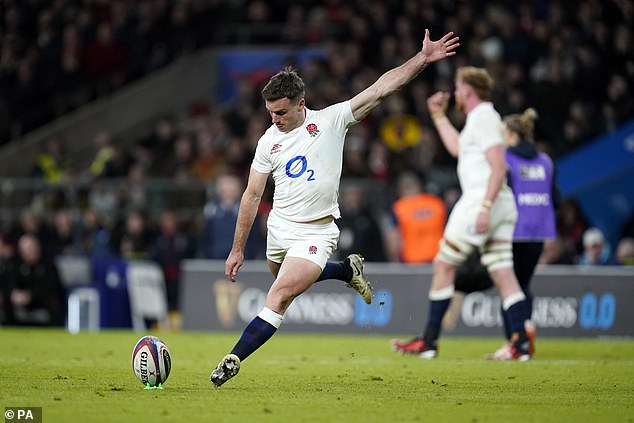If Barry John was watching from the sky, he probably would have logged off with a few minutes to spare. This was not a rugby of the gods. It was hectic and tense and ended in an English victory that will not be remembered as one of the generational classics.
George Ford engineered a second-half comeback, kicking and pressuring England to make it two wins from two in the Jamie George era. There were times when Welsh fans were praying that Dan Biggar would swap his on-field suit for a pair of boots as the visitors built a nine-point lead. Their 12-year wait for a Six Nations victory at Twickenham continues.
In the end, it was simply a happy homecoming for the English. The outstanding player was the Welshman Tommy Reffell, but his Ardie Savea-style interventions in attack and defense were not enough. In the end, England’s strength on the bench made the difference, but much tougher tests await them against Scotland, Ireland and France.
Twickenham’s giant screens showed black and white images of John, JPR Williams and Mike Weston that evoked old memories before kick-off. There was a minute of applause to recognize his brilliance in this historic blockbuster, which on Saturday entered a new era.
The sights, smells and sounds of Whitton Road remain the same on the way to the stadium. The annual pilgrimage passes by fresh donut stands and street preachers. The queues outside the Cabbage Patch and the ticket sellers traveling from east London to the west. There was so much familiarity, but so much uncertainty. There were 30 players in yesterday’s matchday squads who did not feature in the 2023 edition. Owen Farrell’s mural now has a ghostly presence in the west stand. A rivalry restarted.
George Ford helped engineer England’s difficult victory over Wales
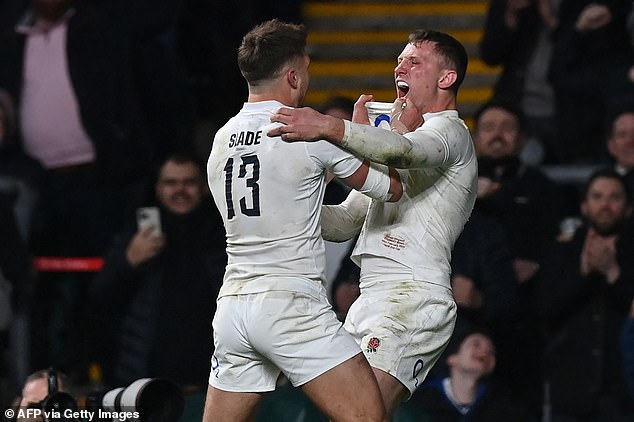
The home team ensured their opponents’ 12-year wait to win at Twickenham continues
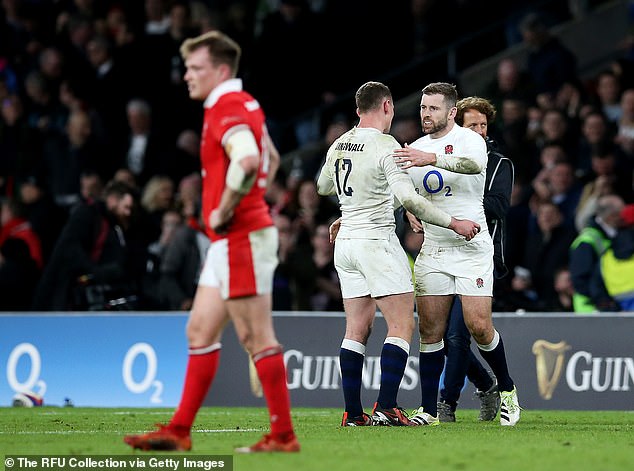
The English players celebrated after the final whistle before a dejected Nick Tompkins.
Alex Mann would hardly be recognized if he walked these streets, but the Wales flanker, in his second cap, scored the try just before half-time to give Wales a two-point lead. It was the result of Welsh discipline, who did not concede a single penalty in the first half while England received two yellow cards. England entered the match with a penalty target of seven, but conceded six in the first 40 minutes.
From day one, England has talked about bringing this ancient place back to life. They extended their walk toward the stadium and ran around the perimeter of the field before kickoff. Small details that alone will not help alleviate the scar of only three victories here in 10 games. The power to accelerate the pulse depended on his performance on the field and it was not until the end.
England visited the Welsh 22 three times in the first 10 minutes, but left with zero points. New era, old problems. Ollie Chessum received a yellow card for a high shot on Keiron Assiratti and was soon joined in the sin-bin by Ethan Roots, who brought down a maul as Wales charged towards the line. Result: penalty attempt.
It took a moment of defensive brilliance to prevent Wales from advancing any further. Maro Itoje caught rookie number 10 Ioan Lloyd naively trying to run the ball from his own line and forced a turnover penalty. England opted for the scrum and Ben Earl charged from the base to score. However, George Ford was shot down before he had a chance to make the conversion.
England withstood a Welsh attack in 25 phases. A feather in the cap of their new defensive coach, Felix Jones, whose face appeared on the big screens when Joe Marler took the knock to lose possession. He was patient, disciplined and aggressive, but in the last minute of the half, England lost serve again.

England’s Jamie George acknowledges the crowd after his team’s 16-14 victory
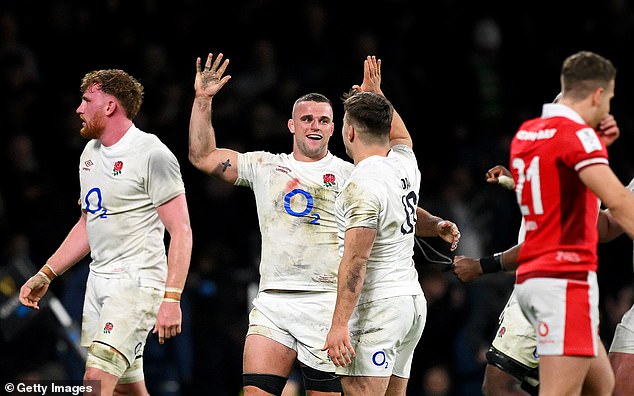
England’s Ben Earl celebrates with teammate Theo Dan during the victory against Wales
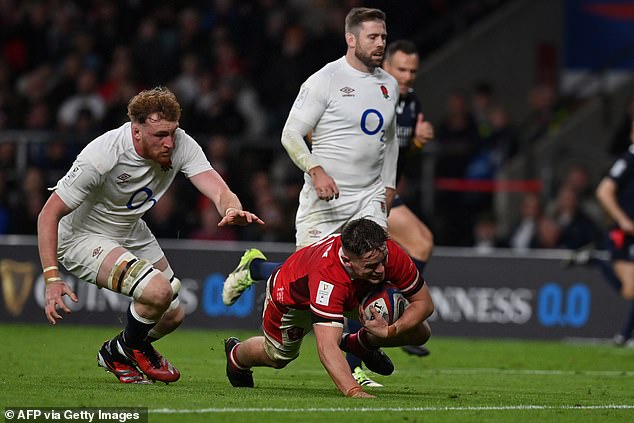
Alex Mann scored Wales’ first try to give the visitors the lead and calm Twickenham.
Wales used quick kicks and tried to throw the ball wide to break down the quick defence. In the end, Reffell intervened with turnovers and offloads, before Mann’s try gave Wales their first half-time lead here in Six Nations history.
“We know how good Tommy is defensively, but we wanted to make him more comfortable as a running threat,” Wales coach Warren Gatland said. “We saw it and he can take his game to the next level. He was absolutely exceptional.”
Wales only had to make 37 tackles in the first half, compared to England’s 117, but rookie full-back Cameron Winnett was ready to step in with a try-saving tackle on Elliot Daly early in the second half. Ford scored the first points of the third quarter and there were vulnerabilities in the Welsh scrum when they brought in rookie prop Archie Griffin, who has not started a Premiership match for Bath.
Instead, England got rid of players like Dan Cole and Ellis Genge to make use of every ounce of their experience. The penalty count changed and England reached their target of seven.
It looked as if he had spent a while restarting scrums, but England will have few complaints. They won a penalty from a set piece and took a corner. They attacked for nine phases, before Daly passed to Fraser Dingwall, whose effort reduced the deficit to one point.
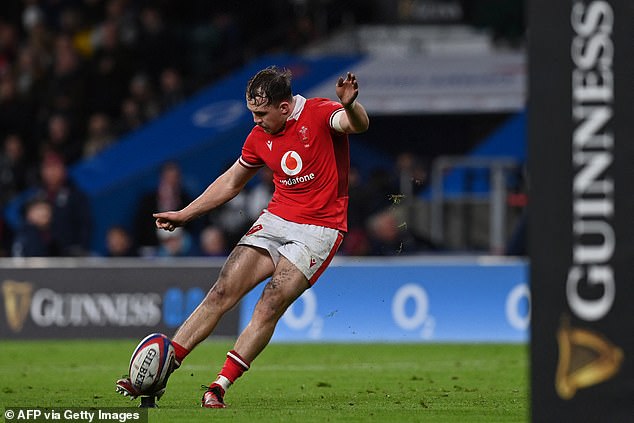
Wales fly-half Ioan Lloyd scores his nation’s first try as they take an early lead against England.
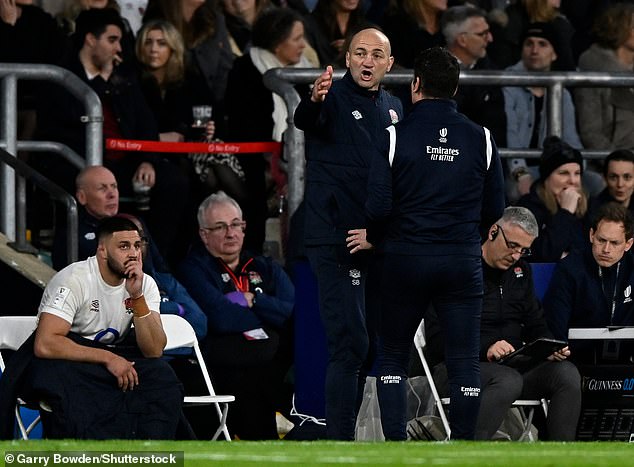
England coach Steve Borthwick will feel his team had even more to give in this tension-filled victory.
Ford took control of the proceedings, targeting the Welsh with spiral bombs and a 50-22. The hosts began to take over the territory and, when Mason Grady was penalized for a deliberate hit in the 72nd minute, the England number 10 finally put his team ahead.
It was tense until the end, although the itching feeling at the final whistle was that both teams have much more to give.

